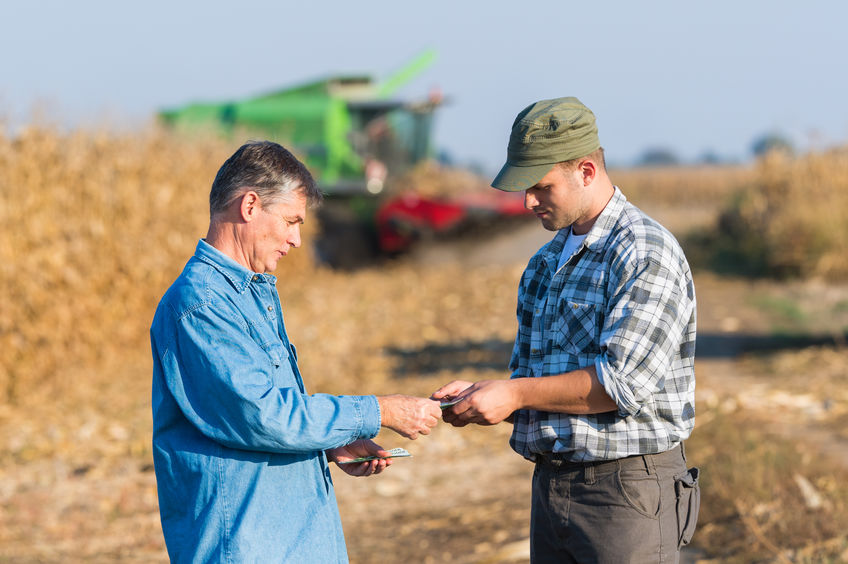In a claim that would do honor to the sincerest pronouncements of Sam Bankman-Fried, the U.S. Department of Agriculture (USDA) is pitching itself as the friend and potential benefactor of America’s rural communities by assisting them in becoming responsible stewards of the climate.
The Biden administration’s campaign to save the planet from carbon dioxide and other climate villains has brought forth the “Partnerships for Climate-Smart Commodities,” which USDA describes as follows:
USDA is committed to supporting a diverse range of farmers, ranchers, and private forest landowners through Partnerships for Climate-Smart Commodities. This effort will expand markets for America’s climate-smart commodities, leverage the greenhouse gas benefits of climate-smart commodity production, and provide direct, meaningful benefits to production agriculture, including for small and underserved producers.
In all, USDA says it will be “investing more than $3.1 billion for 141 projects” nationwide, to be delivered through USDA’s Commodity Credit Corporation. According to USDA, the taxpayer money will go to projects that will:
- Provide technical and financial assistance to producers to implement climate-smart production practices on a voluntary basis on working lands;
- Pilot innovative and cost-effective methods for quantification, monitoring, reporting, and verification of greenhouse gas benefits; and
- Develop markets and promote the resulting climate-smart commodities.
In addition to reaching more than 60,000 farms encompassing more than 25 million acres of working land engaged in climate-smart production practices, USDA says its program will result in “[m]more than 60 million metric tons of carbon dioxide equivalent sequestered over the lives of the projects. This is the equivalent of removing more than 12 million gasoline-powered passenger vehicles from the road for one year.”
USDA anticipates that these projects will result in “[h]undress of expanded markets and revenue streams. Here’s a small sampling of the projects USDA will be funding:
In Alabama, five universities – two in Alabama and three in Florida – will work with the National Hemp Growers Cooperative, LLP to “engage industry partners to create markets for processing industrial hemp into several climate-smart commodities. While developing markets for farmers, the NHGC plans to buy all industrial hemp from all farmers during the duration of the grant.” USDA has budgeted $4,990 million for this climate-friendly project.
In California, a grant ceiling of $45 million has been set to “expand market opportunities for climate-smart almonds through development of verified claims, business-to-business reporting, and supply chain greenhouse gas quantification.” The project, whose lead partner is Blue Diamond Growers, will include “whole orchard recycling” and “plans to develop third-party verification and chain of custody system to support marketing efforts.”
In Louisiana and Arkansas, USDA has earmarked $45 million in grants to “expand climate-smart markets and provide financial incentives for underserved and small-scale rice producers to reduce methane emission emissions through alternate wetting and drying irrigation and develop other sustainable growing patterns to reduce emissions and water consumption. Project plans offer financial incentives for changing management practices and reducing perceived risk barriers.” The lead partner is Supreme Rice, LLC.
In Connecticut, Kansas, Massachusetts, Maryland, Maine, New Hampshire, New Jersey, New Mexico, New York, Pennsylvania, Rhode Island, Texas, and Vermont, USDA will lavish another $45 million in grants to dairy farmers. “Through this project,” USDA explains, “Dairy Farmers of America (DFA) climate-smart pilots will directly connect on-farm greenhouse-gas reductions with low-carbon dairy market opportunity.”
The Rest of the Story
Those who take USDA’s silver will dance to USDA’s tune. This is what is meant by providing rice growers “financial incentives for changing management practices and reducing perceived risk barriers.” Or having “climate-smart pilots” call the shots on dairy farms. Climate policy is not about the climate; it’s about gaining control of people using the climate as a pretext.
And while USDA bills itself as a friend of the farmer or rancher, it’s claims are belied by the Biden administration’s policies that have suppressed the production of domestic oil and natural gas. This has driven up the cost of diesel, used in tractors and other farm equipment, and fertilizer, essential to growing crops. The costs to the farmer are passed on to the consumer, which helps explain today’s skyrocketing food prices at the supermarket.
There’s nothing “climate smart” about any of this. The program is a scam within a scam
